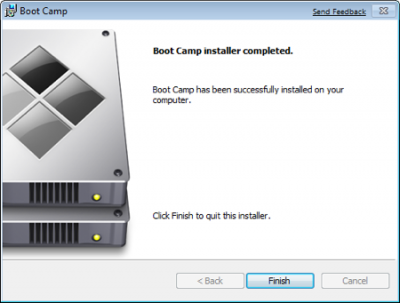

- #APPLE BOOT CAMP REQUIREMENTS HOW TO#
- #APPLE BOOT CAMP REQUIREMENTS FOR MAC#
- #APPLE BOOT CAMP REQUIREMENTS FULL VERSION#
- #APPLE BOOT CAMP REQUIREMENTS INSTALL#
#APPLE BOOT CAMP REQUIREMENTS FOR MAC#
You can download the Parallels 16 Desktop for Mac app from the Parallels website. Regardless, running Windows 10 on M1 Macs is now possible, warts and all. For example, customization tools are limited, at best, since you’re using an unlicensed beta copy of Windows. However, you can still tell ARM Windows isn’t a finished product. I have run into few problems since installing Parallels 16 Desktop for Mac on my M1 MacBook Pro. Because ARM Windows remains in beta, you should expect the occasional bug and frequent system updates. Odds and Endsīe sure to update your virtual copy of Window 10 often by going Start > Settings > Update & Security and click Update. Once you register, you can download a copy of Windows 10 on ARM. Next, you must register as a free Microsoft Insiders user.
#APPLE BOOT CAMP REQUIREMENTS INSTALL#
Install your copy of Parallels Desktop 16 for Mac on your macOS device. This version of Parallels is compatible with Apple silicon and Intel-based Macs. However, new users can download a free trial. To run Windows 10 on these computers, you should download and install Parallels Desktop 16 for Mac. Meanwhile, Apple M1 computers can continue to use a beta version of ARM Windows 10 to do the same with virtualization. Looking Aheadįor now, Intel-based Macs will continue to support Windows 10 with Boot Camp or through a virtualization tool. Ultimately, the market will decide whether Boot Camp on Mac will return on future computers or, at the minimum, Windows 11 support arrives for new Macs in the future.


Plus, given the current lack of a public version of ARM Windows 10, it’s clear this isn’t a priority for the Windows maker right now either. I would guess this number isn’t that large, hence why Apple had no qualms with killing Boot Camp support on M1 devices. There’s no telling how many users need to have Windows support on their Mac. The Future of Boot Camp: The Current Status Second, it’s not entirely clear whether Macs with Apple silicon will support Windows 11 either. At the minimum, Microsoft could delay the launch of an ARM Windows 11 version. At least for now, no Intel-based Mac is likely to support the new operating system since none of these Apple computers use the TPM 2.0 standard, which is a huge requirement for Windows 11. This fall, Microsoft’s releasing Windows 11, which has its own set of requirements. Unfortunately, there’s another issue users will soon have to face when it comes to running Windows on Macs. When this finally happens, running Windows 10 on an Apple silicon device will look very similar to the Boot Camp solution.
#APPLE BOOT CAMP REQUIREMENTS FULL VERSION#
Eventually, however, I would expect Microsoft to release a full version of ARM Windows 10. This solution works well, although there are beta-related issues involved with this setup. As a workaround, Apple M1 users can become members of the Windows Insider problem and install an ARM Insider Preview version of Windows 10 on their Mac through virtualization software such as Parallels. The issue? Boot Camp doesn’t support Apple silicon, and therefore it isn’t installed on the company’s newest computers. More Apple silicon-based Macs are expected to arrive this year and next eventually, Apple will no longer sell Intel-based machines. Since then, four new Macs have been introduced that use an M1 SoC: MacBook Air (2020, M1), 13-inch MacBook Pro (2020, M1), Mac mini (2020), and 24-inch iMac (2021). In 2020, Apple announced plans to no longer produce Macs with Intel-based architecture inside. The Future of Boot Camp: What’s the Problem?


 0 kommentar(er)
0 kommentar(er)
